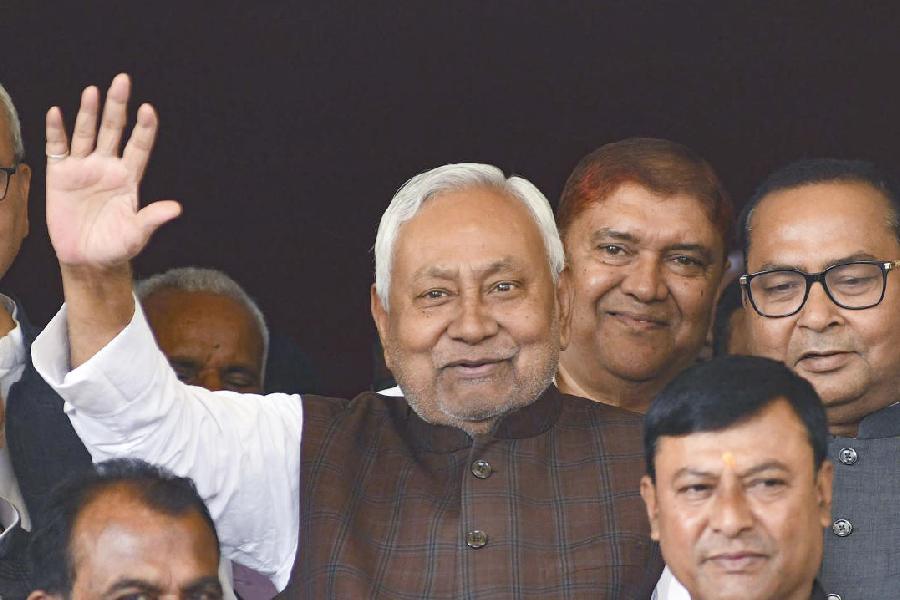 |
| The titular king of Mayong holds up ancient manuscripts at the Mayong Central Museum. Picture by Eastern Projections |
Guwahati, May 13: Was the land of black magic also a place where human sacrifice was once performed?
The Archaeological Survey of India and the state archaeology department will dig up history and land in Mayong — in Assam’s Morigaon district — in search of an answer to this question, which could throw new light on the history of the state.
The superintending archaeologist of the ASI (Guwahati circle), Sanjay K. Manjul, told The Telegraph that excavators had recently dug up swords and other sharp weapons that resembled tools used for human sacrifice in other parts of the country.
“The swords are huge, similar to what were used in human sacrifice in some parts of the country. The villagers, too, told us that their forefathers used to talk about human sacrifice. We have reason to believe that human sacrifice might have taken place in the Ahom era in Mayong. At present, the ritual of animal sacrifice is prevalent in Mayong as it is in other Shakti shrines in the state. But we need to find out more evidence to arrive at a conclusion,” he said.
Mayong, 40km from Guwahati and once considered the cradle of black magic in the country, is today a place of tourist attraction because of its history. Mayong as well as Pragjyotishpura (the ancient name of Assam) find place in many mythological epics, including the Mahabharat. Historians said people used to come to Mayong from far off places in India and abroad to learn black magic.
According to history, human sacrifices were carried out in connection with the worship of Shakti till the early modern period. The practice of narabali (human sacrifice) used to exist in ancient temples.
H.N. Dutta, the director of the state archaeology department, said the residents of Mayong firmly believe that human sacrifice used to take place in their village in ancient times. They have kept the swords, which are believed to have had been used for human sacrifice, as a mark of respect for their forefathers.
“The villagers believe that some of the ancient temples were witness to human sacrifice,” he added.
“Mayong is an interesting place for historians and archaeologists. There is a need for an in-depth study to explore its many hidden aspects. We will carry out more excavations in the coming days to find more evidence on whether human sacrifice actually took place there,” he said.
Dutta said human sacrifice or the killing of human beings was performed as part of a religious ritual in different countries and civilisations for various reasons.
“If at all human sacrifice was practised at Mayong, we have to explore the reasons. Once we know the reasons, it will give a new dimension to the entire history and civilisation of Assam,” he added.










